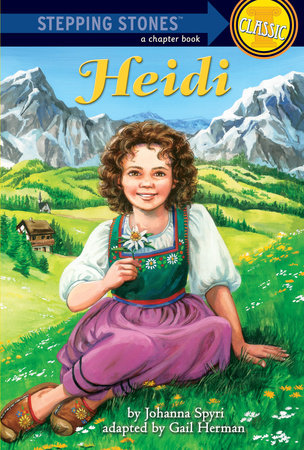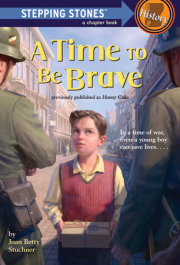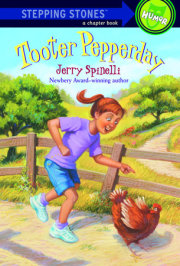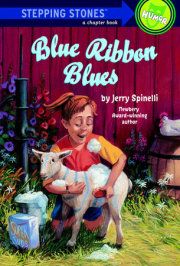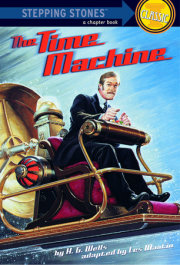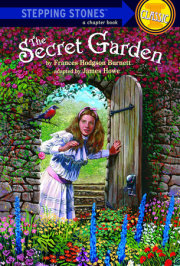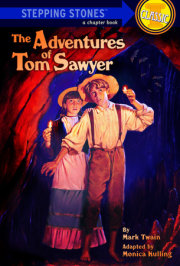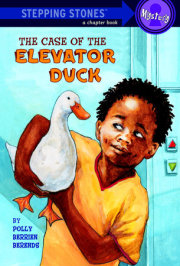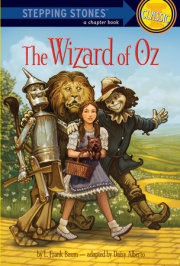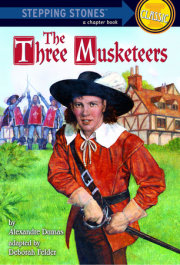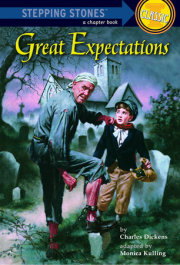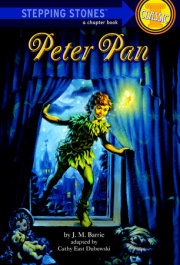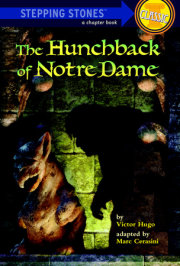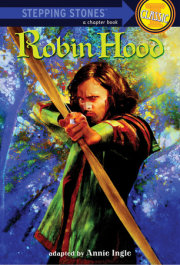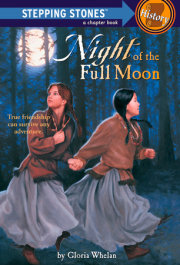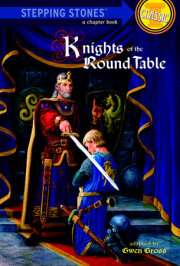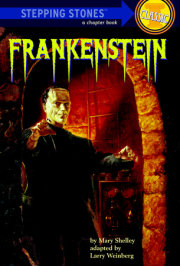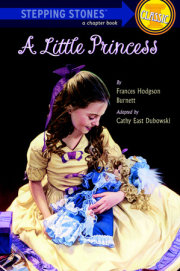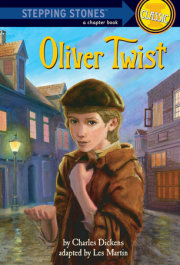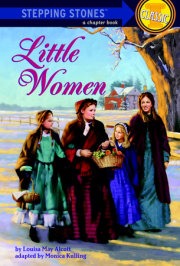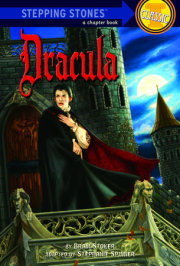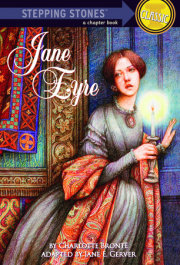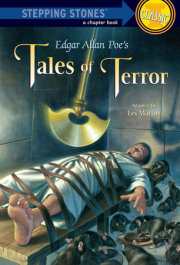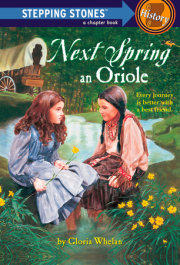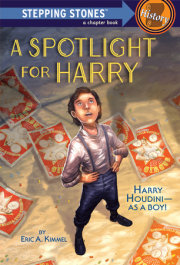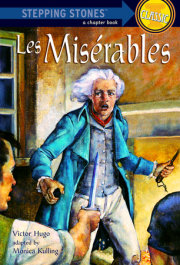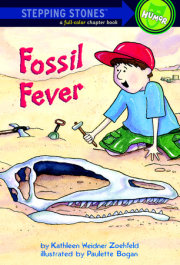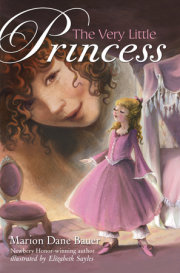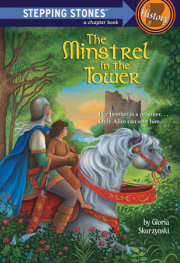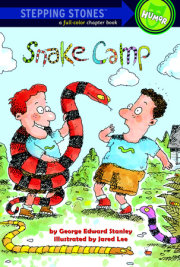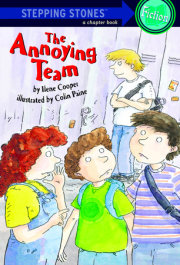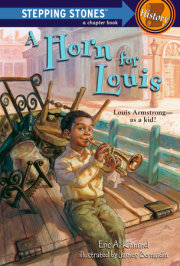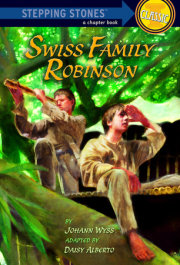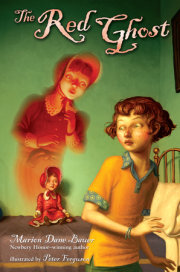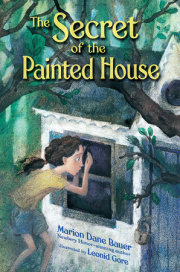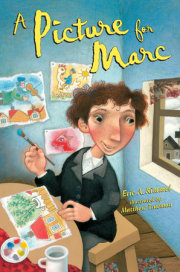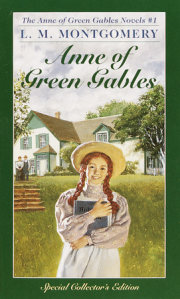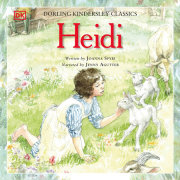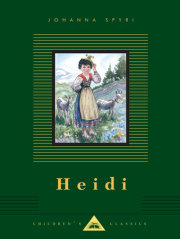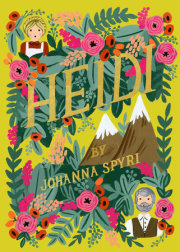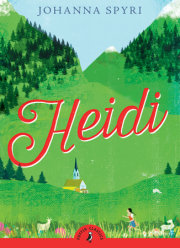from CHAPTER 1: The Alm-Uncle
FROM THE pleasantly situated old town of Maienfeld a footpath leads up through shady green meadows to the foot of the mountains, which, as they gaze down on the valley, present a solemn and majestic picture. Anyone who follows it will soon catch the keen fragrance of grassy pasture lands, for the footpath goes up straight and steep to the Alps. One bright, sunny June morning, a tall, sturdy looking girl, evidently a native of the mountains, was climbing this narrow path. She led by the hand a little maiden, whose cheeks glowed as if a ruddy flame were under her dark-brown skin. And what wonder? In spite of the hot June sun, the child was bundled up as if for protection against the sharpest cold. She could not have been five years old, but it was impossible to tell anything about her natural figure, for she wore two or three dresses, one over the other, and a big red cotton scarf round her neck; her feet were lost in heavy hobnailed shoes, and the little thing was quite formless as she made her hot and laborious way up the mountain.
At the end of an hour of steady climbing the two girls came to the group of houses that lies halfway up the Alm Mountain and is called Dorfli, or the Little Village. Here they were greeted from almost every cottage, and by everyone in the street, for the older of the two girls had reached her home. Nevertheless, she made no pause but hurried on, answering all questions and greetings as she went. At the very end of the hamlet, as she was passing the last of the scattered cottages, a voice from the doorway cried:
‘‘Wait a moment, Dete, I’ll go with you, if you are bound up the mountain.’’
The girl addressed stopped; immediately the child withdrew her hand and sat down on the ground. ‘‘Are you tired, Heidi?’’ asked her companion. ‘‘No, I am hot,’’ replied the little girl. ‘‘We are almost there,’’ said her companion encouragingly. ‘‘You must put out all the strength you have for a little while longer; it won’t take us more than an hour.’’
Just then a large, pleasant-looking woman came out of the cottage and joined them. The little girl jumped to her feet and followed the two women, who had instantly fallen into a lively conversation regarding all the inhabitants of the village and of the neighborhood. ‘‘But really, Dete, where are you taking the child?’’asked the newcomer. ‘‘It is your sister’s little girl, isn’t it—the orphan?’’
‘‘Yes, it is,’’ replied the other. ‘‘I am taking her up to her grandfather; she will have to stay there.’’
‘‘What! the little girl is going to live with the Alm- Uncle? You must have lost your senses, Dete! How can you think of doing such a thing? The old man will send you back with such a scheme as that.’’
‘‘He can’t do it; he’s her grandfather, and it is time for him to look out for her; I have had her till now, and I must tell you, Barbel, that I could not think of letting her hinder me from taking such a place as I have just had offered me. Her grandfather must do his part now.’’
‘‘That’s very well, if he were like other men,’’ urged Barbel with some indignation. ‘‘But you know what he is. What will he do with a child—especially with such a young one? He won’t hear of such a thing—But where are you going?’’
‘‘To Frankfurt,’’ said Dete. ‘‘I have an extra good place there. The family was down at the Baths last summer; I had charge of their rooms, and they wanted then to take me back with them. I couldn’t manage it; but they are here again this year, and still want me to go with them, and I am going; you may be sure of that.’’
‘‘I’m glad I’m not in the child’s place!’’ cried Barbel with a shrug of the shoulders. ‘‘Nobody knows what ails the old man up there. He will have nothing to do with a living soul; from one end of the year to the other he never sets foot in a church; and if once in a twelvemonth he comes down with his thick staff, everyone keeps out of his way and is afraid of him. With his heavy gray eyebrows and his tremendous beard he looks like a heathen and a savage, and people are glad enough not to meet him alone.’’
‘‘Nevertheless,’’ said Dete stubbornly, ‘‘he’s her grandfather, and it’s his business to look after the child; he won’t do her any harm; if he does, he will have to answer for it.’’
‘‘I should like to know,’’ said Barbel inquisitively, ‘‘I should really like to know what the old man has on his conscience that makes him look so fierce and live all alone up there on the Alm and keep almost hidden from sight. People tell all sorts of stories about him; of course you must know something about it, Dete; your sister must have told you; hasn’t she?’’
‘‘Of course she has, but I hold my tongue; if he should hear of it, I should suffer!’’
But Barbel had long desired to know the real cause of the Alm-Uncle’s strange behavior, and why it was that he looked so gloomy and lived by himself on the mountain, and why people always spoke of him in a low voice, as if they were afraid to be against him and yet would not say anything in his favor. Barbel also was ignorant of the reason that all the people in the village called him the Alm-Uncle, for of course he could not be the actual uncle of all the inhabitants; but as everyone called him so, she did the same and never spoke of the old man as anything else than Ohi, which in the speech of that region means uncle. Barbel had only recently married into the village; before that her home had been down in the valley at Prattigau, and she was not familiar with all the happenings and all the curious characters of the village and the surrounding region through a long series of years.
Her good friend Dete, on the other hand, was a native of the village and had lived there till within a year. Then her mother had died and she had gone down to Ragatz, where the Baths are, and had found a fine position as chambermaid in a great hotel. She had come from Ragatz that very morning with the little girl, having had the chance to ride as far as Maienfeld on a hay wagon which an acquaintance of hers was driving home.
Barbel thought that this was a good chance to find out something, and she was bound not to let it slip. She seized Dete’s arm familiarly and said: ‘‘But one can learn the real truth from you instead of the gossip which is talked; I am sure you know the whole story. Come now, just tell me what is the matter with the old man; has he always been so feared? Has he always been such a hermit?’’
‘‘I can’t tell whether he has always been so or not; I am twenty-six now, and he is certainly seventy, and of course I never saw him when he was young; you might know that. If I were certain that he would never again be seen in all Prattigau, I might tell you all sorts of things about him; my mother was from Domleschg, and so was he.’’
‘‘There now, Dete, what do you mean?’’ exclaimed Barbel, a little offended. ‘‘You need not be so severe on our gossip in. Prattigau; and, besides, I can keep a secret or two if need be. Now tell me; you shan’t regret it.’’
‘‘Well, then, I will; but mind you hold your tongue,’’ said Dete warningly. Before she began she glanced round to see if the little girl were so close at their heels as to hear every word that was said. The child was not to be seen; she must have ceased following them some distance back, but in their lively conversation they had not noticed it. Dete stood still and gazed all round. There were several turns in the footpath; nevertheless they could see almost all the way down to the village. Not a soul was in sight.
‘‘I see her!’’ exclaimed Barbel. ‘‘There she is! Don’t you see her?’’ and she pointed with her finger to a place quite distant from the path. ‘‘She is climbing up the cliffs with the goatherd Peter and his goats. Why is he so late today with his animals? But it is just as well, for he can look after the child, and you will be all the better able to talk with me.’’
‘‘Peter needn’t trouble himself to look after her,’’ remarked Dete. ‘‘She is not dull for a child of five years; she keeps her eyes open and sees what is going on. I have already noticed that, and it’s a good thing for her that she does. The old man has nothing to leave her but his two goats and his mountain hut.’’
‘‘And did he once have more?’’ asked Barbel.
‘‘He? Well, I should say that he did once have more,’’ replied Dete warmly. ‘‘He used to have the finest farm in Domleschg. He was the eldest son and had only one brother, who was quiet and well behaved. But the elder would do nothing but play the fine gentleman and travel about the country, mixing with bad people that nobody knew about. He drank and gambled away the whole property; and so it happened that his father and mother died, one first and then the other, from sheer grief; and his brother, who was also reduced to beggary, went away out of humiliation, nobody knew where; and the uncle himself, as he had nothing left but a bad name, also disappeared— at first no one knew whither, then it was reported that he had gone with the soldiers to Naples, and after that nothing more was heard of him for twelve or fifteen years. Then he suddenly appeared again in Domleschg with a half-grown boy and tried to find a home for him among his relations. But every door was closed to him, and no one wanted to know anything more about him. This made him very bitter; he said he would never set foot in Domleschg again, and he came here to Dorfli and lived with the boy. His wife was probably a Grison woman whom he had come across down below and lost soon after their marriage. He must have had some money still, for he let the boy Tobias learn the carpenter’s trade; and he was a steady fellow and well thought of by all the people in Dorfli. But nobody had confidence in the old man, and it was said that he had deserted from Naples, that he had got into trouble, that he had killed somebody, not in war of course, but in some quarrel. But we recognize the relationship, for my mother’s grandmother was his grandmother’s first cousin. So we called him uncle, and as we are related to almost all the people in Dorfli, on father’s side, they all call him uncle, and since he went up on the Alm he has been known as the Alm-Uncle.’’
‘‘But what became of Tobias?’’ asked Barbel eagerly.
‘‘Wait and I’ll tell you. I can’t tell everything in one breath!’’ exclaimed Dete. ‘‘Tobias was serving his time in Mels, and as soon as he finished he came home to Dorfli and married my sister Adelheid, for they had always been fond of each other, and after their marriage they lived very happily together. But it didn’t last long. Two years after, while Tobias was working on a new house, a beam fell on him and killed him. Adelheid’s fright and grief when her husband was brought home so disfigured threw her into a violent fever, from which she did not recover. She never was very strong, and was often in such a condition that it was almost impossible to tell whether she was asleep or awake. Only two weeks after Tobias’s death Adelheid, too, was buried. Then the sad fate of the two was in everybody’s mouth far and wide, and it was hinted and openly declared that it was a judgment the uncle deserved for his wicked life. It was said so to his face; even the pastor warned him seriously to repent, but he only grew more and more cross and hard and no longer spoke to anyone, and everyone avoided him.
‘‘Suddenly it was reported that the uncle had gone up on the Alm and no longer came down at all; since then he has stayed there and lives apart from God and man.
‘‘Mother and I took Adelheid’s little child; she was a year old. Last summer mother died, and as I wanted to work down at the Baths, I took Heidi to board with old Ursel up in Pfafferserdorf. I was able to stay at the Baths all winter. I found plenty of work, because I could sew and mend; and early in the spring the lady I served last year came back from Frankfurt, and she is going to take me home with her. Day after tomorrow morning we start. It is a good place, I can tell you.’’
‘‘And now are you going to give the child to the old man up there? I’m surprised that you should think of such a thing, Dete,’’ said Barbel reproachfully.
‘‘What do you mean?’’ retorted Dete. ‘‘I have done my duty by the child. What else could I do with her now? I don’t think I could take a child scarcely five years old to Frankfurt. But where are you going, anyway, Barbel? We are halfway up the Alm now.’’
‘‘I have already reached the place where I was going. I want to speak to old goatherd Peter’s wife. She does spinning for me in winter. So good-by, Dete; good luck to you!’’
Copyright © 2019 by Johanna Spyri. All rights reserved. No part of this excerpt may be reproduced or reprinted without permission in writing from the publisher.

